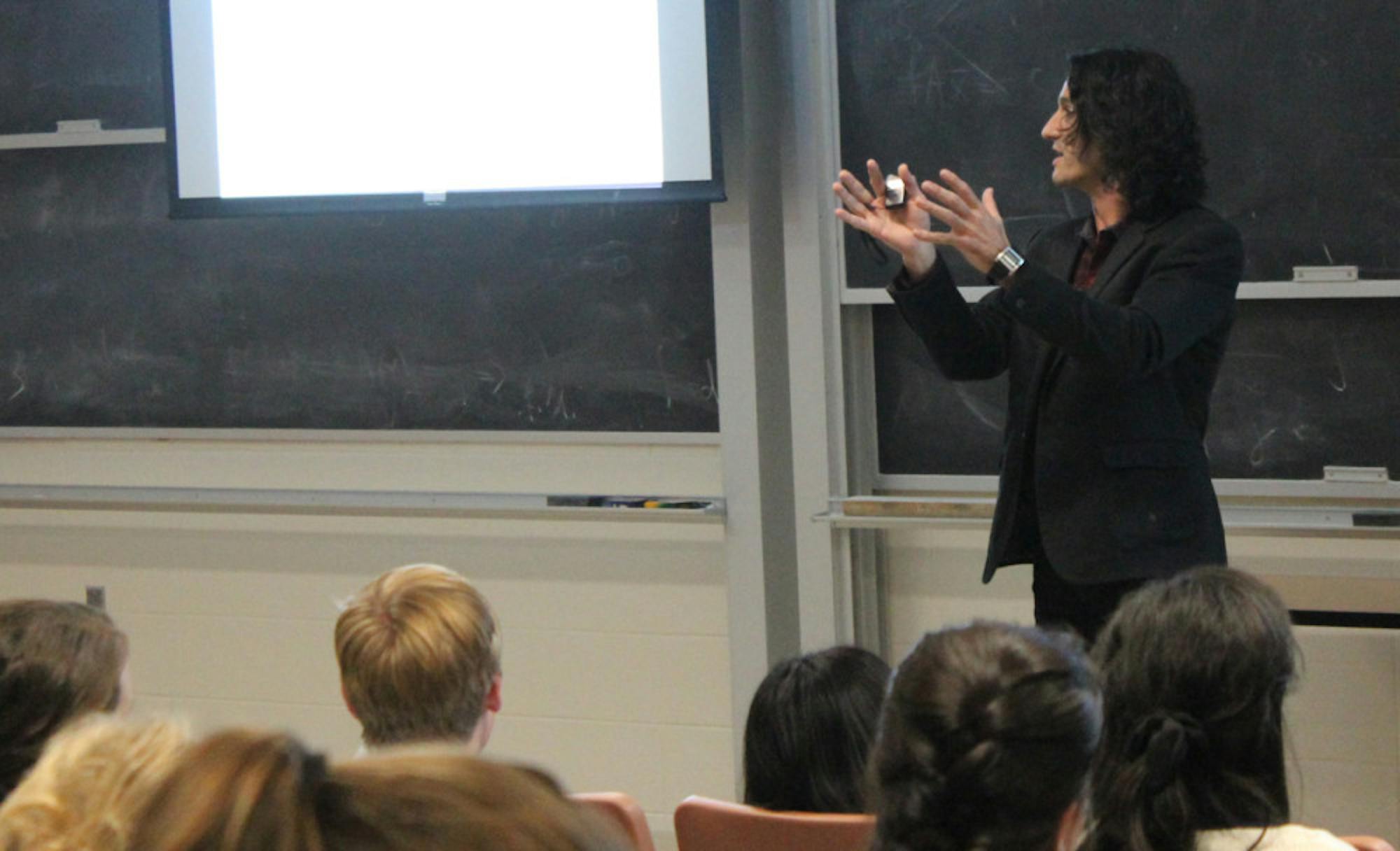
Fuentes said one of the biggest problems the United States has had and still has today is the inability to talk effectively about race.
“Race and inequality have a particular relationship in our present and in our history,” Fuentes said. “…This is one [issue] that has a very high potential for change in the future. This is not a fixed reality, but it is an important one.
"If we don’t understand it, think about it, talk about it, [and] engage with it; it is not going to change. Because right now, it is not sustainable, and it is not right.”
Fuentes said in our society, almost everyone believes that Black, White, Latino, Asian, and others are distinct biological entities.
“I want to demonstrate what we know from rigorous scientific studies, that races as we use now are not biological entities," Fuentes said. “We all have 100 percent of the same genes. What varies is that each gene comes in multiple forms – two, 17, 140 – and it’s the variation in the presence of those different forms in a population that is human genetic variation.”
Fuentes said that most racial definitions perceived by society, such as gene types, body forms, skin colors and genetic diseases, are not backed by biology.
“All of our racial definitions are socially constructed,” he said. “We made them up, and we use them, but they have real effects. Race is not biological, but race is distributed and impacted in unequal ways by the structures – the political, historical and social structures.”
Social contexts and the expectations of individuals in a society can have a massive impact on health, he said.
“Race is not biological, but it can become biology," Fuentes said. "Racial inequality creates biological differences in people."
Fuentes stated that we are not in a post-racial society, and that race matters in our society.
“So when you are with a cluster of your friends, or your family, or in a classroom - if someone said something that is wrong, that is not true, that is not based on the biological and social historical facts that we have available, it is your response to act,” he said.













